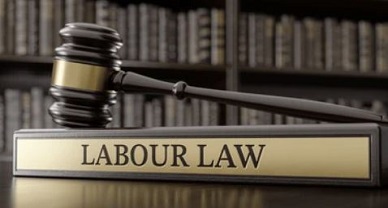Catalysts of Accountability: Exploring the Nexus Between Whistle-blower Safeguards and Corporate Criminal Liability Mitigation in India
Introduction
A whistle-blower, although construed to be an act by a good Samaritan towards the prevention of any form of fraudulent and illegal activities within a functional hierarchy, requires a far more significant comprehension with regard to the validity of the allegations raised and protection of such whistle-blowers from undue influence. While whistle-blowing stands to be a pivotal source for the identification and punishment of unethical corporate practices, the act itself involves a great deal of risk for the whistle-blower, due to which most employees are discouraged from doing so, fearing for the safety and security of their employment, or in severe cases, their lives. The Executive Director of the National Whistle-blower Centre in the United States, Stephen. M. Kong elaborated that whistle-blowers uncover far more than regulatory authorities or even professional corporate auditors.
WHO IS A WHISTLE-BLOWER?
The National Whistle-blower Centre defines a whistle-blower as a person who reports unethical and illegal practices such as fraud, corruption, wastage, or abuse, which could possibly affect public health, safety and security. Such reporting is usually done to a person who is capable of resolving the issue at hand, and can take the required procedure to administer justice. Both internal and external whistle blowers are differentiated upon,
wherein the former reports such unethical practices to a superior officer within the organisation and the latter reports such activities to third parties such as law enforcement agencies and the media. In India, whistle-blowing is governed by the Whistle Blowers Protection Act 2014 and by the Companies Act, 2013. However, both such legislations have a limited reach over safeguards provided for whistle-blowers as neither act covers the entirety of all entities potentially holding the risk of carrying out unethical practices.
CRITICAL ANALYSIS
KEY PRINCIPLES
The need for extensive legislation surrounding corporate criminal liability has established due to the diffused nature of companies and their expansion from 17 th century to the present state. Whistle-blower legislations are more of a need at the current era, as we can understand that an employee within the organisation has the eagle eye over matters of an organisation as a logical conclusion. Throughout history, several cases have established the need for an
effective whistle-blower legislation, with the Bhopal Gas Tragedy being exhibit A in India’s case. While Corporate Criminal Liability outside of whistle-blower cases have evolved to a great extent with landmark judgements such as the Lennard’s Carrying Company Ltd case and the Mousell Bros case, the area surrounding whistle-blowing has remained grey in India. While the Whistle Blowers Protection Act, 2014 is limited to public sector undertakings and
public servants, it does not include private corporate entities. Furthermore, the Companies Act, 2013 mandates the incorporation of a whistle-blower policy within companies. While on first look, such mandate may seem effective, but the companies act only extends its reach upon the same for listed companies, thereby excluding
the rest.
[Image Sources: Shutterstock]
The 179 th report of the Law Commission of India in 2001 highlighted the need for a detailed whistle-blower law, naming it the Public Interest Disclosure (Protection) Act, entailing the need for the protection of whistle-blowers in mitigating corporate criminal practices. Although this law commission report was released in 2001, up until today, there fails to exist substantial whistle-blower policies internally within companies, or externally
through government legislations. Under the Whistle Blower Protection Act, if an individual feels that they are facing any form of retaliation or victimization throughout the period of blowing the whistle upon organisations, the act allows for such persons to seek protection from the necessary authorities designated within the act itself. However, the act fails to define in any way, the term ‘victimization’ or does not elaborate upon what is considered to be retaliation.
The act in itself fails to establish or address major concerns regarding the sustainability of a career for whistle-blowers, the explicit dedication towards addressing the risk that such whistle-blowers face, nor does it promote whistle-blowing as an activity through any form of remedy/award. However, a distinctive approach was taken by the Securities and Exchange Board of India, wherein Clause 49 was added to the Listing Agreement in 2003, wherein SEBI included a requirement of creating a ‘Whistle-blower policy’ for employees to report unethical practices
to the management.
SUGGESTIONS AND CONCLUSION
From the facts and circumstances of the existing legislature in India, a logical conclusion can be arrived at, which showcases the clear lack of law and governance surrounding whistle-blowers, although the benefits of the same in carrying out efficient and effective corporate governance, along with the mitigation of corporate criminal liability has been clearly seen through various examples across India and other jurisdictions including the United States and
Malaysia as well. Taking into consideration the above highlighted research, certain steps that can be taken to improve the existing legislature regarding whistle-blowers are as follows:
- Expand existing legislature to include all corporate entities to necessarily provide for a whistle blower policy, with Clause 49 of the Listing Agreement by SEBI, being set as an example.
- Ensure the safety and security of the lives and careers of whistle-blowers, due to societal perception of disloyalty that occurs, through amendment of the Whistle Blowers Protection Act, 2014
- Encourage the government to set up programmes awarding whistle-blowers in the instance of a significant contribution to societal development and curbing corporate criminality, taking inspiration from the American Model.
Author: Param.B. Kailash, in case of any queries please contact/write back to us at support@ipandlegalfilings.com or IP & Legal Filing.



